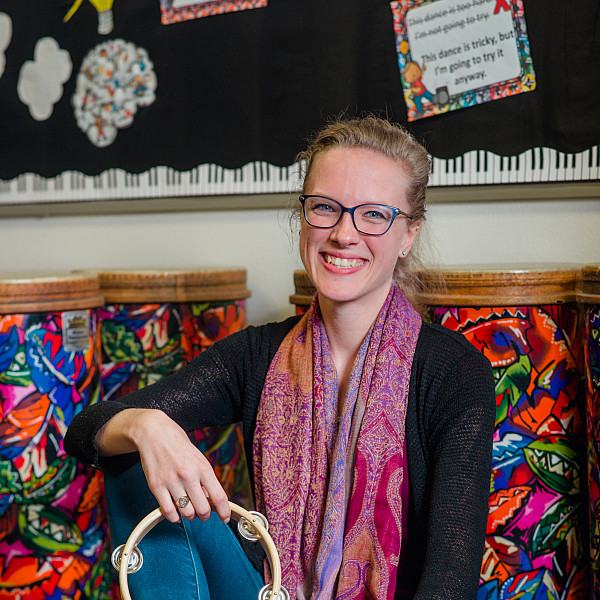News
Southwestern Alumnus Turns International Opera Star
Weston Hurt ’99 reflects fondly on his early career at Southwestern.
October 11, 2018
October 11, 2018
Open gallery

The multiaward-winning baritone Weston Hurt ’99 may now be a veteran of the stage, but his passion for opera started at Southwestern in the Alma Thomas Theater. His recent operatic engagements have included his role debut as Valentin in Gounod’s Faust in a return to New Orleans Opera, his company debut at Tulsa Opera as Scarpia in Puccini’s Tosca, a return to Seattle Opera in his signature role of Germont in Verdi’s La Traviata, a recital appearance with Wagner and More in Seattle, and his company and role debut as Creonte in Cherubini’s Medea with Opera Omaha’s inaugural ONE Festival. Upcoming performances include his debut with Opera San Antonio as Germont in La Traviata; a return to Portland Opera, again as the elder Germont; and a debut at the Lyric Opera of Chicago in early 2019, covering the same role. Weston finally returns to the New Orleans Opera in the title role of the tortured jester in Rigoletto. We shared a number of questions with Hurt, inquiring about his Southwestern Experience.
How did you find out about Southwestern?
Southwestern was great about recruiting students from my high school, Klein Oak, in Spring, Texas. On numerous occasions during my four years there, Southwestern brought their University Choir or Opera Theater Ensemble to perform.
Why did you select Southwestern as your undergraduate institution?
Southwestern seemed to have the right balance of high academic standards and offering an intense music education. The proximity to Austin was nice, [as was] being based in Georgetown (in my time, this was pre-Sun City). It was a beautiful, quiet, small town north of Austin and only two-and-a-half hours from home in Houston.
What experience at Southwestern inspired you to follow your career path?
I knew that I wanted to be a singer before I arrived at Southwestern, but it was the opportunity to sing the title role of Figaro in Mozart’s The Marriage of Figaro during my first semester with Southwestern’s Opera Theatre that cemented in my mind that I had truly discovered my passion and future career.
Who was your favorite professor, or what was your most memorable class, at Southwestern, and why?
My favorite professor at Southwestern was Dr. Kenny Sheppard [professor emeritus of music]. He was my choir director, at one point my voice teacher, and, most importantly, my friend. The most memorable class at SU was ear training/keyboard harmony with Dr. Hsueh-Yung Shen. This was one of the most challenging classes I ever took throughout my entire education! Dr. Shen was cursed and blessed with perfect pitch, and he gave students the impression we should be able to do the things that came naturally to him. In hindsight, I think he was not able to fully understand why we couldn’t just hear what he was hearing, which made the class extremely challenging but certainly a course I will never forget!
How do you connect the dots from your Southwestern Experience to your life today?
Southwestern was the place where I found my passion to pursue a career as a professional opera singer. I knew from the moment I stepped on stage as Figaro in Mozart’s The Marriage of Figaro at Southwestern in the fall of 1993 that this was the life for me. Southwestern also taught me balance. I’m ever thankful for the liberal arts education that I received at SU.
I’m ever thankful for the liberal arts education that I received at SU.
How would you describe an average month in your profession?
When I am on a gig, we work six days per week but no more than six hours of rehearsals in any given day. In the United States, a typical rehearsal period is two to four weeks, depending on the house and the production. We usually begin that with a musical read-through of the entire opera on day one and then begin to stage the show over the next weeks. During the weeks that we are staging the opera, depending on which role you are singing, you might be called everyday, or if you don’t make your entrance until act two, you might find yourself initially with quite a bit of free time on your hands. I like to explore whatever town I’m in, find my hotspots for the month or six weeks that I’m there, and really get to know the city. During those initial two to four weeks, we have costume fittings, wig fittings, and interviews, and, of course, we stage the entire show. Then, we have tech week in the theater, where we rehearse on stage with costumes and eventually with the orchestra, adjusting as needed for the space. Finally, we have the performances. While not on a gig, my average week is about being home and spending time with my family.
What is the most rewarding part of your career?
In my career, it rarely feels that I am ever really at work. It almost always feels like I am just a big kid getting to play and make music with my colleagues, whether it’s discovering new depths of roles I have sung before or learning a new character and how they interact with others around them. I absolutely love my career and feel honored that I have the opportunity to make a living as a performer.
How did Southwestern prepare you for your career?
It was incredibly beneficial that my voice teacher during my first two years at Southwestern was Gerald Dolter, who had a career as a performer prior to his career in academia. He was able to guide, inspire, and even helped launch the initial stages of my career as a young artist.
What habits make you successful in your career?
I have always been able to memorize things very quickly. This is a huge benefit as a professional singer. Other successful habits would include finding an exercise routine that works for you that keeps you healthy, financial budgeting as a self-employed artist, honing your multitasking abilities, and language study while becoming adamant about sounding fluent in your pronunciation—among others.
What other information would you like to share?
I have had the pleasure on numerous occasions to return to Southwestern as a mentor to music students in master classes, as a guest judge in the vocal competition, [as a performer] in recital, as a guest speaker for President Burger’s Thinking Symposium, as well as as a soloist with the Georgetown Festival of Arts. I sincerely look forward to future opportunities to work with the students of Southwestern, helping them find their passions.
After graduating from Southwestern, Hurt studied at Indiana University and then at The Juilliard School as a member of their Opera Center. He has received many notable vocal awards, including first place and the People’s Choice Award from the Dallas Opera Guild Vocal Competition, the Vienna Prize from the George London Foundation, and first place in the Oratorio Society of New York Competition. He’s also the recipient of awards from the Licia Albanese–Puccini Foundation International Competition, the Liederkranz Foundation, the Metropolitan Opera National Council, the Opera Index, and the Palm Beach Opera Competition, as well as two career grants conferred by The Santa Fe Opera. Hurt now resides in Cypress, Texas, with his wife, Christina L. Schade West ’00, and daughter.
















